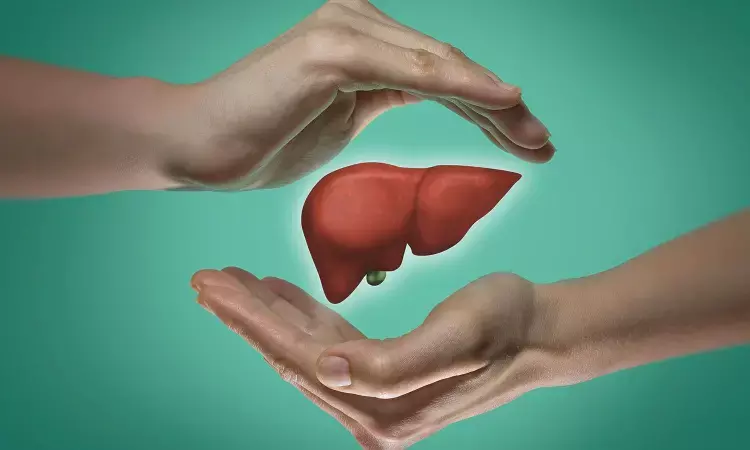- Home
- Medical news & Guidelines
- Anesthesiology
- Cardiology and CTVS
- Critical Care
- Dentistry
- Dermatology
- Diabetes and Endocrinology
- ENT
- Gastroenterology
- Medicine
- Nephrology
- Neurology
- Obstretics-Gynaecology
- Oncology
- Ophthalmology
- Orthopaedics
- Pediatrics-Neonatology
- Psychiatry
- Pulmonology
- Radiology
- Surgery
- Urology
- Laboratory Medicine
- Diet
- Nursing
- Paramedical
- Physiotherapy
- Health news
- Fact Check
- Bone Health Fact Check
- Brain Health Fact Check
- Cancer Related Fact Check
- Child Care Fact Check
- Dental and oral health fact check
- Diabetes and metabolic health fact check
- Diet and Nutrition Fact Check
- Eye and ENT Care Fact Check
- Fitness fact check
- Gut health fact check
- Heart health fact check
- Kidney health fact check
- Medical education fact check
- Men's health fact check
- Respiratory fact check
- Skin and hair care fact check
- Vaccine and Immunization fact check
- Women's health fact check
- AYUSH
- State News
- Andaman and Nicobar Islands
- Andhra Pradesh
- Arunachal Pradesh
- Assam
- Bihar
- Chandigarh
- Chattisgarh
- Dadra and Nagar Haveli
- Daman and Diu
- Delhi
- Goa
- Gujarat
- Haryana
- Himachal Pradesh
- Jammu & Kashmir
- Jharkhand
- Karnataka
- Kerala
- Ladakh
- Lakshadweep
- Madhya Pradesh
- Maharashtra
- Manipur
- Meghalaya
- Mizoram
- Nagaland
- Odisha
- Puducherry
- Punjab
- Rajasthan
- Sikkim
- Tamil Nadu
- Telangana
- Tripura
- Uttar Pradesh
- Uttrakhand
- West Bengal
- Medical Education
- Industry
Study Finds Sleeve Gastrectomy Safe and Effective for Post-Liver Transplant Patients with Metabolic Dysfunction

Belgium: A recent nationwide study conducted in Belgium has highlighted the safety and feasibility of sleeve gastrectomy (SG) following liver transplantation. The research, which examined the outcomes of bariatric surgery in post-transplant patients, suggests that this procedure may play a crucial role in preventing metabolic dysfunction-associated steatotic liver disease (MASLD), a condition that can complicate the recovery of liver transplant recipients.
The findings were published online in the journal Liver Transplantation.
Weight gain is an increasing concern following liver transplantation (LT), and metabolic dysfunction-associated steatotic liver disease can negatively affect graft health. The timing of bariatric surgery (BS) is critical for patients with liver disease or those who have undergone transplantation. While BS may be an option for addressing weight gain after LT, the available evidence is limited, and the long-term outcomes remain uncertain. To address this knowledge gap, Louis Onghena, Department for Human Structure and Repair, Department of Gastrointestinal Surgery, Ghent University Hospital, Ghent, Belgium, and colleagues set out to assess the effectiveness of sleeve gastrectomy as a weight-loss intervention in this specific population.
For this purpose, the researchers conducted a national retrospective analysis across five Belgian transplant centers, including 25 patients who underwent bariatric surgery following liver transplantation. In addition, 187 LT patients without bariatric procedures were included for comparative analysis. Clinical, biochemical, and outcome data were retrospectively gathered. In this nationwide cohort, the 25 patients who received BS did so at a median of 3.5 years post-transplant.
Based on the study, the researchers reported the following findings:
- 84.0% underwent sleeve gastrectomy. The majority of these patients were male (72.0%) and had a lower age at the time of transplantation compared to the non-bariatric surgery population (54.5 years versus 60.6 years).
- Significant and sustained weight loss was observed, with body mass index decreasing from 41.0 ± 4.5 before surgery to 32.6 ± 5.8 one to three years post-surgery, and further down to 31.1 ± 5.8 three to five years post-surgery.
- Before surgery, three patients experienced recurrent and one patient developed de novo metabolic dysfunction-associated steatotic liver disease after liver transplantation, all of which resolved following bariatric surgery.
- Significant reductions were noted in alanine transaminase levels, which decreased from 40.5 ± 28.5 U/L to 27.1 ± 25.1 U/L post-surgery, as well as in HbA1c levels, dropping from 6.9 ± 1.6 to 6.0 ± 1.4.
- Throughout the study, three patients were re-transplanted, and eight patients passed away; of these, 20.0% of the patients died due to nonhepatic malignancies, while one succumbed to liver failure.
According to the authors, sleeve gastrectomy is the preferred bariatric surgery following liver transplantation and has demonstrated safety and feasibility in this context, along with positive metabolic outcomes. They suggest that SG is a valid treatment option for both de novo and recurrent metabolic dysfunction-associated steatotic liver disease in post-transplant patients.
"While this study represents the largest cohort examined to date, we emphasize the necessity for larger studies to further investigate the impact of bariatric surgery on patient and graft survival," they concluded.
Reference:
Onghena, Louis1,2,3,4; Geerts, Anja3,4; Berrevoet, Frederik2; Pirenne, Jacques5; Verbeek, Jef6; Bonaccorsi-Riani, Eliano7,8; Dahlqvist, Geraldine9; Vonghia, Luisa10; Detry, Olivier11; Delwaide, Jean12; Lefere, Sander3,4; van Nieuwenhove, Yves1,2. Bariatric surgery post-liver transplantation: A Belgian nationwide study. Liver Transplantation 30(10):p 1050-1057, October 2024. | DOI: 10.1097/LVT.0000000000000372
Dr Kamal Kant Kohli-MBBS, DTCD- a chest specialist with more than 30 years of practice and a flair for writing clinical articles, Dr Kamal Kant Kohli joined Medical Dialogues as a Chief Editor of Medical News. Besides writing articles, as an editor, he proofreads and verifies all the medical content published on Medical Dialogues including those coming from journals, studies,medical conferences,guidelines etc. Email: drkohli@medicaldialogues.in. Contact no. 011-43720751


